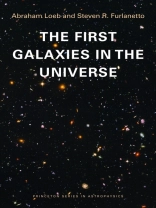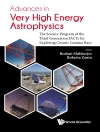This book provides a comprehensive, self-contained introduction to one of the most exciting frontiers in astrophysics today: the quest to understand how the oldest and most distant galaxies in our universe first formed. Until now, most research on this question has been theoretical, but the next few years will bring about a new generation of large telescopes that promise to supply a flood of data about the infant universe during its first billion years after the big bang. This book bridges the gap between theory and observation. It is an invaluable reference for students and researchers on early galaxies.
The First Galaxies in the Universe starts from basic physical principles before moving on to more advanced material. Topics include the gravitational growth of structure, the intergalactic medium, the formation and evolution of the first stars and black holes, feedback and galaxy evolution, reionization, 21-cm cosmology, and more.
- Provides a comprehensive introduction to this exciting frontier in astrophysics
- Begins from first principles
- Covers advanced topics such as the first stars and 21-cm cosmology
- Prepares students for research using the next generation of large telescopes
- Discusses many open questions to be explored in the coming decade
Over de auteur
Abraham Loeb is Frank B. Baird, Jr. Professor of Science, chair of the Astronomy Department, and director of the Institute for Theory and Computation at Harvard University. Loeb is a member of the American Academy of Arts and Sciences. He is the author of
How Did the First Stars and Galaxies Form? (Princeton).
Steven R. Furlanetto is associate professor of physics and astronomy at the University of California, Los Angeles.












